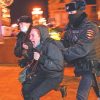No products in the cart.
Global: Cheating epidemic

Incidents of cheating in online examinations have hit a record high, according to proctoring data that shows that one in 14 students was caught breaking the rules last year. Analysis of data on 3 million tests globally that used the ProctorU invigilation platform found that “confirmed breaches” of test regulations — incidents where there is clear evidence of misconduct — were 6.6 percent of all cases.
This is 14 times higher than the 0.5 percent misconduct rate detected in the 15 months prior to the start of the Coronavirus pandemic, which triggered the widespread adoption of online assessments and, with this, a surge in the use of online proctoring services such as ProctorU. But it also represents a steep increase on 2020, when breaches were confirmed in 3.9 percent of tests — indicating that the problem is getting worse as students become more accustomed to online tests.
The data is based on tests conducted in about 1,000 centres around the world, mostly in the US, the UK and Australia. The confirmed breach rate for higher education assessments only — excluding professional exams — was even higher than the overall average, at 7.2 percent.
ProctorU founder Jarrod Morgan, who is now chief strategy officer of the Alabama-based parent company Meazure Learning, says he is concerned that the rate of cheating is so high even though students know they are being watched by an invigilator. Confirmed breaches included candidates looking at papers or books they should not have had, other people being present in the room during an assessment or a student attempting to take a test on behalf of a classmate.
Morgan says rates of cheating would likely be even higher at universities that did not use online proctoring, and he worries that high levels of rule-breaking could devalue students’ qualifications. “It doesn’t take long before the whole thing starts to collapse; the value of a degree or grade comes from society agreeing that if you get it from such a place, it means something,” he says. “If we start to think it doesn’t mean as much because we know people have cheated their way through the courses, the whole thing starts to get shaky.”
Dr. Thomas Lancaster, a senior teaching fellow and expert in academic integrity at Imperial College London, says that while it has been well-documented that misconduct has risen during the pandemic, it was surprising to see such an increase among students being monitored online via a process that has been criticised as being “more invasive than face-to-face proctoring. That suggests to me that students feel under so much pressure that they have been forced to resort to unfair means in this situation,” says Lancaster.
Also Read: Germany: Online exams cheating spurt














Add comment